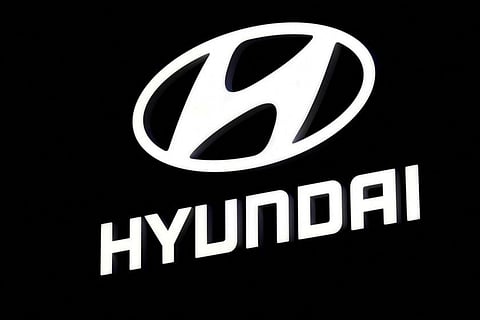Hyundai unveils $8.5 billion spending plan amid EV push
Hyundai also increased dividends in an unusual move for the carmaker

Seoul: Hyundai Motor will invest 10.5 trillion won ($8.5 billion) over the course of 2023, according to an exchange filing Thursday, as it moves to electrify more of its fleet to sate rising consumer demand for cleaner cars.
The money will be spent primarily on research and development and on building a new plant in Georgia, the Seoul-based automaker said. Hyundai said in May that it’s outlaying $5.5 billion to build an electric car assembly and battery plant near Savannah in the US state, with the project expected to break ground in early 2023.
The South Korean automaker is also targeting revenue growth of as much as 11.5 per cent this year after posting fourth-quarter earnings that beat analyst estimates. Hyundai also increased dividends in an unusual move for the carmaker, whose stock rose as much as 6.3 per cent following the news.
“Favorable foreign-exchange rates and higher sales of value-added cars led the growth for 2022,” Hyundai Executive Vice President Seo Gang-Hyun said on an earnings call. He added the global chip shortage that’s hampered carmakers since late 2020 should ease in 2023. The company’s marketing costs may rise as competition intensifies, however.
Boosting EV production
The maker of Tucson SUVs, Sonata sedans and Ioniq electric vehicles earlier this month said it aims to sell 4.3 million cars globally this year, or about 10 per cent more than 2022. Affiliate Kia Corp., the maker of the Sportage SUV and the Carnival people-mover, is also targeting growth of 10 per cent for a total of 3.2 million vehicles. Combined, Hyundai and Kia rank as the world’s third-largest carmaker behind Toyota Motor Corp. and Volkswagen AG.
Automakers from Tesla Inc. to VW are boosting production as EVs gain traction. Elon Musk’s EV pioneer plans to increase output “as quickly as possible” after posting better-than-expected profits, it said Wednesday in the US. Toyota meanwhile earlier this month forecast vehicle production will exceed pre-pandemic levels, expecting output of as many as 10.6 million vehicles this year. VW predicted existing orders will boost sales this year.
Operating profit for the three months ended December 31 more than doubled to 3.4 trillion won from a year earlier, the company said Thursday. That topped the 3.1 trillion won average analyst estimate, according to data compiled by Bloomberg. Quarterly sales jumped to 38.5 trillion won, up 24 per cent from the previous year.
Inflation Reduction Act tensions
In North America, where Hyundai is negotiating to ease concerns over President Joe Biden’s climate and energy bill that requires carmakers to assemble EVs in the country to be eligible for tax credits, sales rose 21 per cent in the fourth quarter. Hyundai and Kia say the law puts them at a disadvantage because they don’t have any EV plants in the US.
Sales in China for the three-month period slumped 19 per cent while those in Europe were little changed.
Hyundai is trying to build its EV plant in Georgia “as soon as possible” and secure local battery suppliers to comply with Biden’s US Inflation Reduction Act, Seo said on the earnings call. In 2023, Hyundai will try to boost sales in the US by selling cars via a leasing program, allowed under the latest iteration of the IRA. Hyundai is meanwhile updating its more detailed reaction plan to the law, he said.


